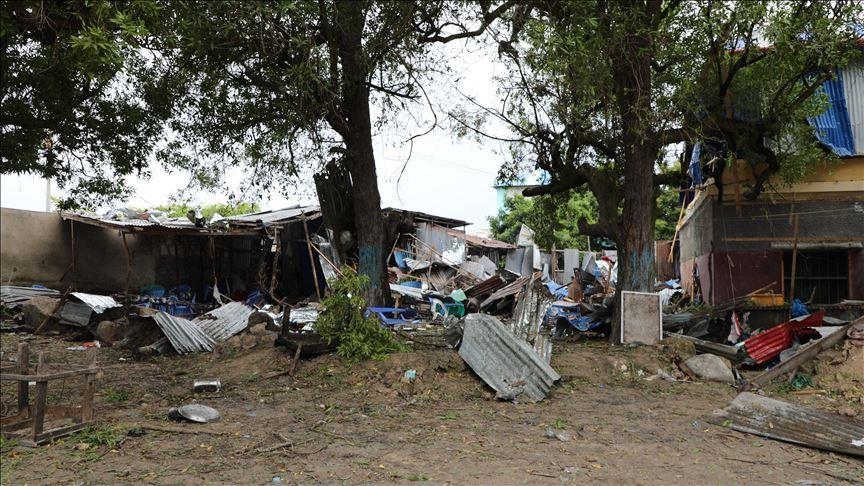
Thursday November 26, 2020

GAROWE, Somalia (Thomson Reuters Foundation)—Electronics shop owner Mohamed Nor had a thriving business selling televisions and phones in Somalia’s coastal town of Bosaso until three days ago, when the most powerful storm to hit the country hammered his business and left him with nothing.
“I had a booming shop in downtown Bosaso. It has been flooded. I lost my entire property worth over $35,000,” Nor, 39, told the Thomson Reuters Foundation by phone.
“I lost my entire life just like that. No one, no government, no charity has reached out to me for help. I’m looking for God to help. I don’t know what to do,” said the father of four.
Cyclone Gati is the strongest storm to hit the Horn of Africa nation since satellite records began - bringing two years of rain in two days and wind speeds of 170 kph (105 mph) to northeastern Somalia’s Puntland region on Sunday.The United Nations said eight people have died and 180,000 people have had their lives disrupted, with more than a dozen towns and villages inundated by flood waters, which have destroyed homes and businesses and submerged crops and pastures.
Impoverished Somalia is one of the countries most vulnerable to climate change but it receives little climate adaptation funding, according to the International Federation of Red Cross and Red Crescent Societies.
The country of 15 million often suffers prolonged droughts and flash floods - threatening people’s livelihoods and worsening hunger amid ongoing conflict between its Western-backed government and the Islamist militant group al Shabaab.
The U.N. Office for the Coordination of Humanitarian Affairs (UNOCHA) said on Wednesday Gati had weakened and was expected to dissipate in the coming hours, but had left “a trail of physical and economic damage”.
Close to 70,000 people - including fishermen, herders, farmers and traders - will need support to rebuild their livelihoods following the disaster, its latest bulletin said.
Yusuf Abshir, who lives on the outskirts of Bosaso, said more than 70% of his animals drowned in the flood waters.
“I’m frustrated now. I had 110 sheep and goats. Only 30 survived,” said 42-year-old Abshir.
“We lost our entire source of income for the family because I used to milk them, take the milk to Bosaso, and return later in the day with cash and food stuff like rice, oil, sugar and flour.”
Northern Somalia usually gets about 10 cm (4 inches) of rain per year, but satellite images from NASA’s Earth Observatory said Gati brought at least that much in two days.
Reporting by Mohammed Omer, Editing by Nita Bhalla and Katy Migiro.